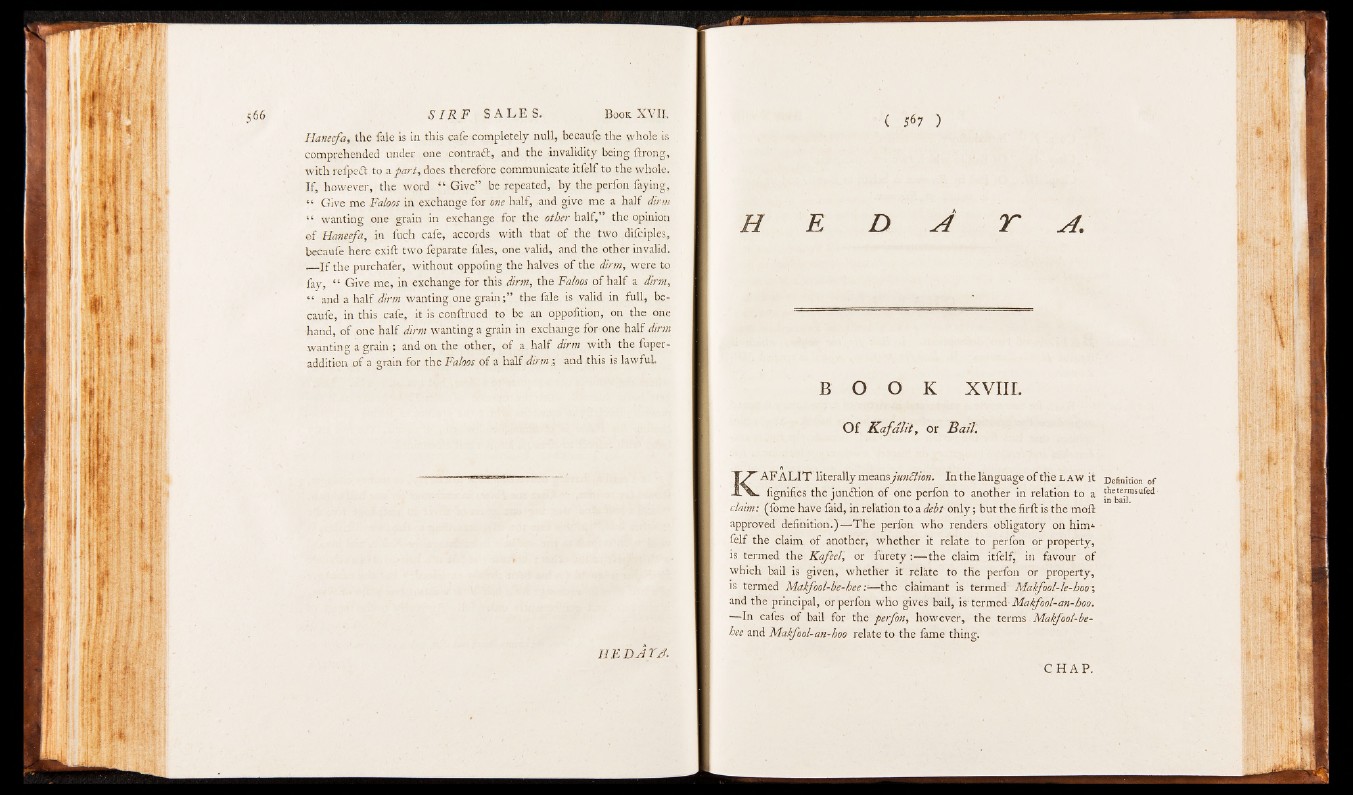
T jS S P f! lllflli
I p i
i* .1 , ; f I
I l f l !rf.nF 11
Hanecfa, the fale is in this cafe completely null, becaufe the whole is
comprehended under one contradt, and the invalidity being ftrong,
with refpedl to a part, does therefore communicate itfelf :to the whole.
If, however, the word “ Give” be repeated, by the .perfon faying,
“ Give me Faloos in exchange for one half, and give me a half dirm
“ wanting one grain in exchange for the other half,” the opinion
of Haneefa, in fuch cafe, accords with that of the two difciples,
becaufe here exift two feparate fales, one valid, and the other invalid.
_I f the purchafer, without oppofing the halves of the dirm, were to
fay, “ Give me, in exchange for this dirm, the Faloos of half a dirm,
“ and a half dirm wanting one grain;” the fale. is valid in full, becaufe,
in this cafe, it is conftrued to be an oppofitipn, on the one
hand, of one half dirm wanting a grain in exchange for one half dirm
wanting a grain ; and on the other, of a half dirm with the fuper-
additkm of a grain for the Faloos of a half dirm', and this is lawful.
f i i i
I i t
I S If f ill
m i
i lS i »
H E D J r j .
H E D J T A .
B O O K XVIII.
Of Kafalii, or Bail.
A F A L IT literally meansjunction. In the language of the l a w it
fignifies the junction of one perlon to another in relation to a
claim: (fome have faid, in relation to a debt only; but the firft is the mod
approved definition.)— The perfon who renders, obligatory on himi
felf the claim of another, whether it relate to perfon or property,
is termed the Kafeel, or furety :— the claim itfelf, in favour of
which bail is given, whether it relate to the perfon or property,
is termed Makfool-be-hee :■— the claimant is termed' Makfool-le-hoo",
and the principal, or perfon who gives bail, is' termed Makfool-an-hoo.
— In cafes of bail for the perfon, however, the terms Makfool-be-
hee and Makfool-an-hoo relate to the fame thing.
Definition o f
the terms ufed
in bail.
C H A P .